Boost muscle health and vitality with these protein-packed veggies.

As you age, maintaining muscle mass and overall health becomes a top priority, and protein plays a crucial role in that process. While most people associate protein with meat and dairy, several vegetables are surprisingly rich in this essential nutrient. Adding these high-protein veggies to your meals can help keep your body strong, support metabolism, and enhance overall well-being without relying solely on animal-based sources.
1. Spinach is a leafy green powerhouse.
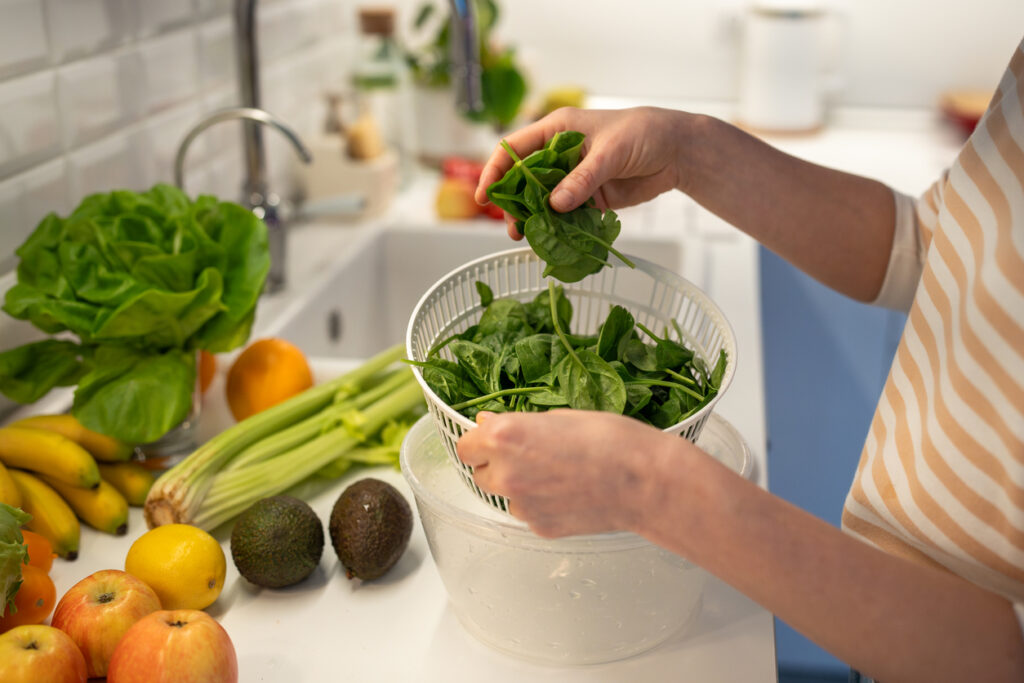
Spinach is one of the most nutritious leafy greens available, offering about 2.9 grams of protein per cooked cup. It’s also loaded with iron, magnesium, and fiber, making it an excellent choice for maintaining muscle function and overall health, according to Medical News Today. Whether blended into smoothies, tossed into salads, or sautéed with garlic, spinach is a versatile addition to a high-protein diet.
Beyond protein, spinach provides essential antioxidants that support eye health and cognitive function—two key concerns for seniors. It also has anti-inflammatory properties that may help reduce the risk of chronic diseases like arthritis and heart disease. By incorporating more spinach into your meals, you’ll be fueling your body with essential nutrients while keeping your diet fresh and flavorful.
2. Peas pack a surprising protein punch.
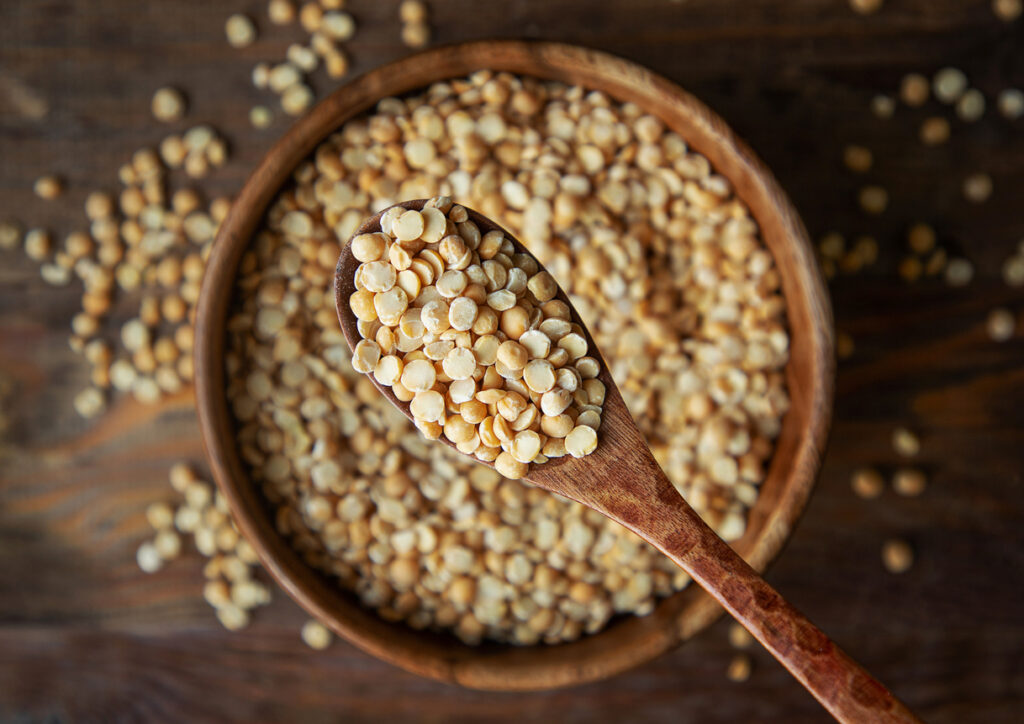
Peas may seem small, but they are an excellent plant-based protein source, delivering about 8 grams per cooked cup, according to Healthline. They are also rich in fiber, vitamins A, C, and K, and essential minerals like iron and phosphorus. Their natural sweetness makes them an easy addition to soups, stir-fries, and grain bowls, providing a nutrient-dense boost to any meal.
In addition to their protein content, peas help support digestive health thanks to their high fiber levels, keeping things moving smoothly in your gut. They are also a good source of antioxidants that promote heart health and reduce inflammation. Whether fresh, frozen, or pureed into a spread, peas are a tasty and nutritious way to increase your protein intake.
3. Broccoli supports strong muscles and bones.
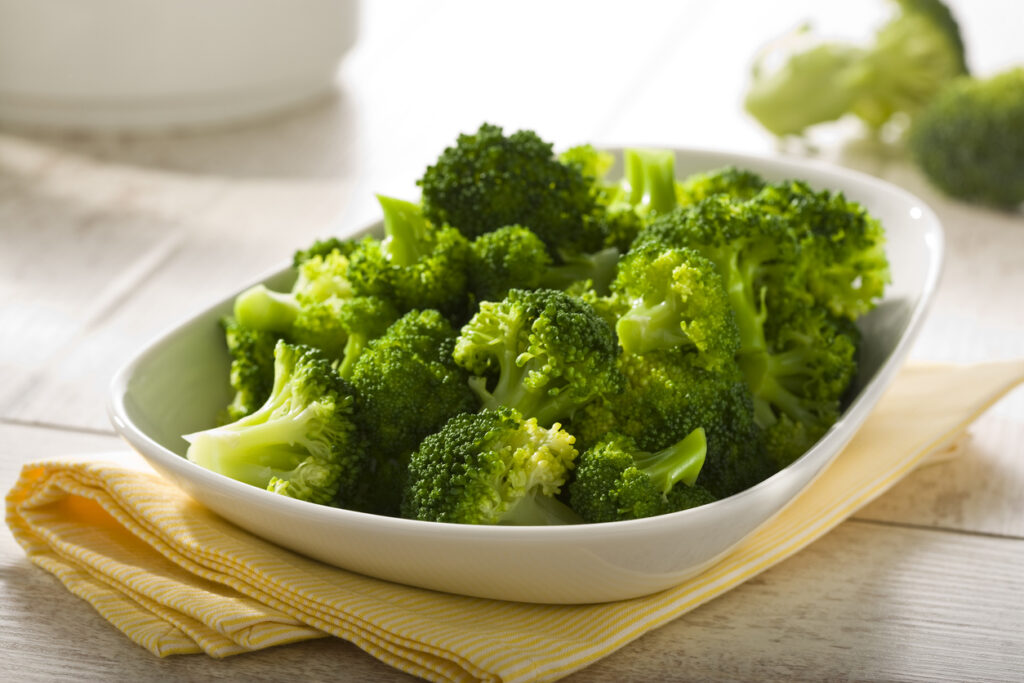
Broccoli delivers about 4.3 grams of protein per cooked cup, along with a powerful dose of vitamin C, calcium, and fiber. This cruciferous vegetable is known for its anti-inflammatory benefits and ability to support bone density—critical for maintaining mobility and reducing fracture risk in older adults. Plus, it’s delicious whether steamed, roasted, or added to stir-fries.
Broccoli’s high antioxidant content also helps combat oxidative stress, which can accelerate aging and lead to chronic diseases. Its fiber keeps your digestive system healthy, while the combination of protein and calcium strengthens bones and muscles. By regularly enjoying broccoli, you’re giving your body a well-rounded nutritional boost that supports longevity and vitality.
4. Brussels sprouts offer a double dose of protein and fiber.
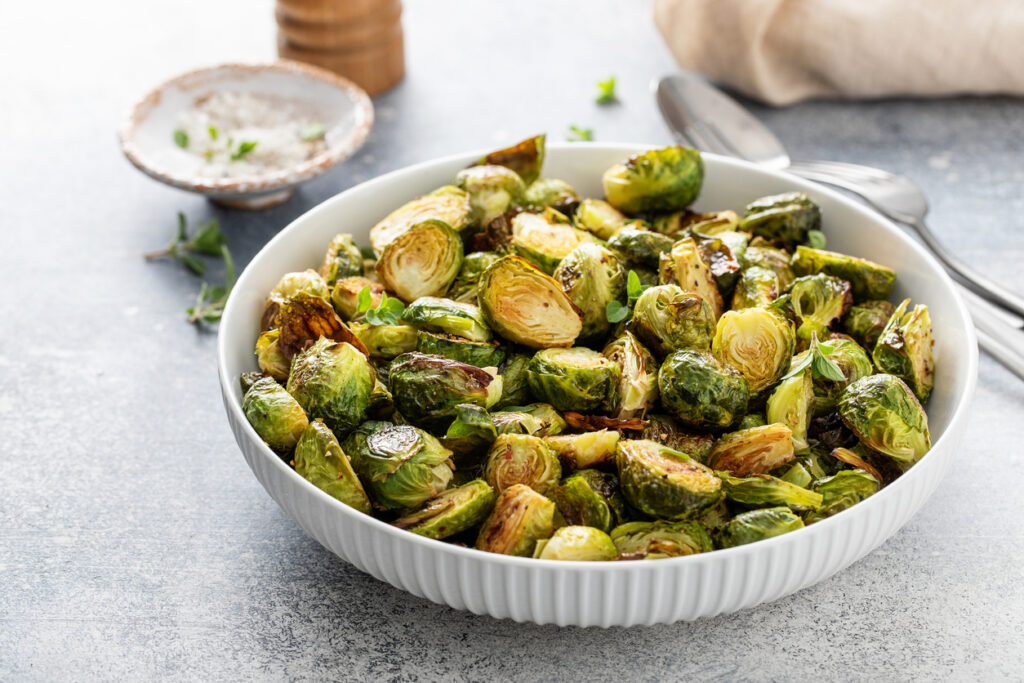
Brussels sprouts provide about 4 grams of protein per cooked cup, making them one of the top high-protein veggies. They are also loaded with fiber, which promotes digestive health, stabilizes blood sugar, and keeps you feeling full longer. Roasting them with olive oil and spices brings out their natural sweetness and makes for a tasty, nutrient-dense side dish.
Beyond their protein content, Brussels sprouts contain powerful antioxidants that support immune function and may help reduce inflammation. They also provide vitamin K, which plays a crucial role in bone health and blood clotting. Adding Brussels sprouts to your diet can improve overall well-being while delivering a satisfying crunch and robust flavor.
5. Kale delivers plant-based protein with a side of vitamins.
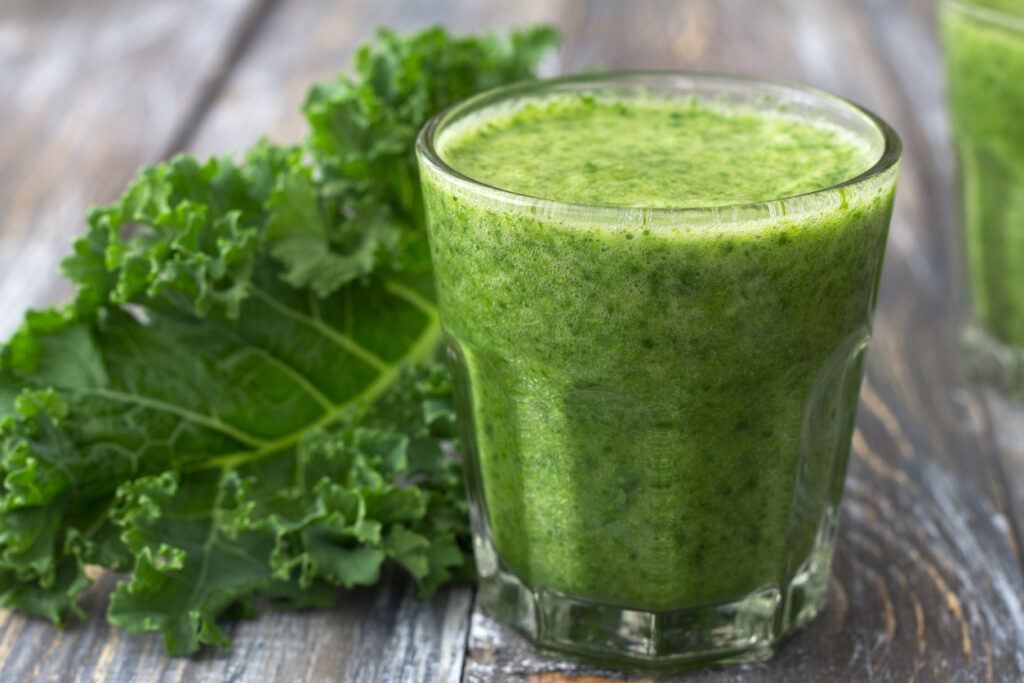
Kale is well known as a superfood, but it also provides a decent protein punch with about 3 grams per cooked cup. It’s packed with vitamins A, C, and K, along with fiber and antioxidants that help protect cells from damage. Whether added to soups, blended into smoothies, or massaged into salads, kale is a nutrient-dense choice for seniors.
This leafy green also supports heart health by reducing cholesterol levels and improving circulation. Its combination of protein, fiber, and micronutrients makes it an excellent addition to a balanced diet, ensuring you get the essential elements needed for strong muscles, healthy bones, and vibrant energy levels.
6. Asparagus is a high-protein springtime favorite.
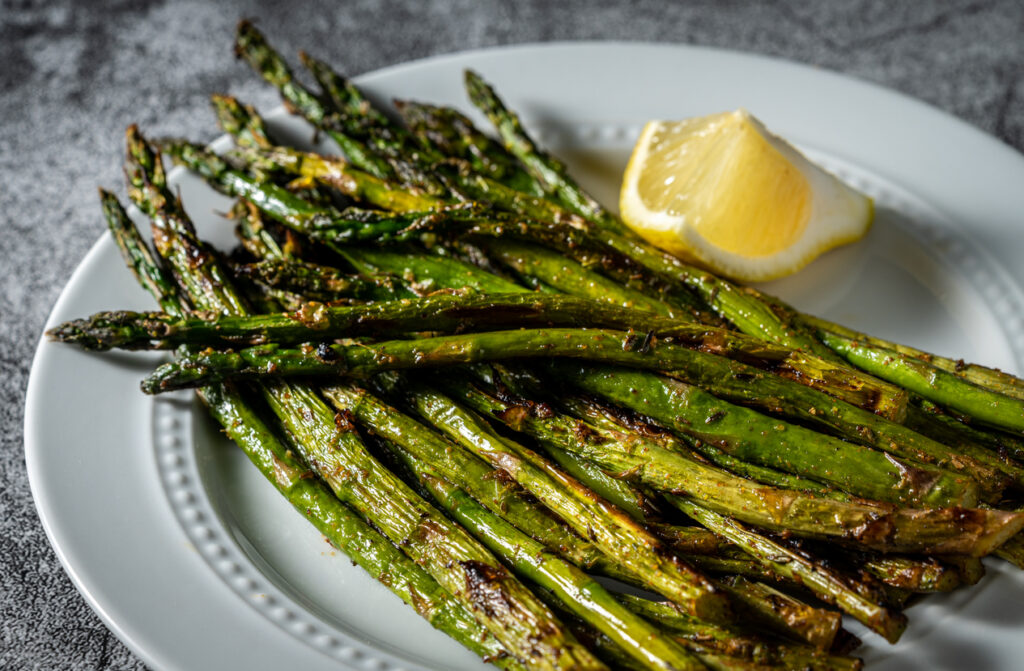
Asparagus provides about 2.9 grams of protein per cooked cup while being low in calories and rich in essential nutrients like folate, potassium, and vitamin K. Its unique blend of amino acids helps support muscle repair and growth, making it a valuable addition to a protein-conscious diet.
Additionally, asparagus is a natural diuretic that helps reduce bloating and promote kidney health. Its prebiotic fiber also supports gut health by feeding beneficial bacteria. Whether grilled, roasted, or added to omelets, asparagus brings both flavor and health benefits to your meals.
7. Mushrooms offer a meaty texture and plant-based protein.
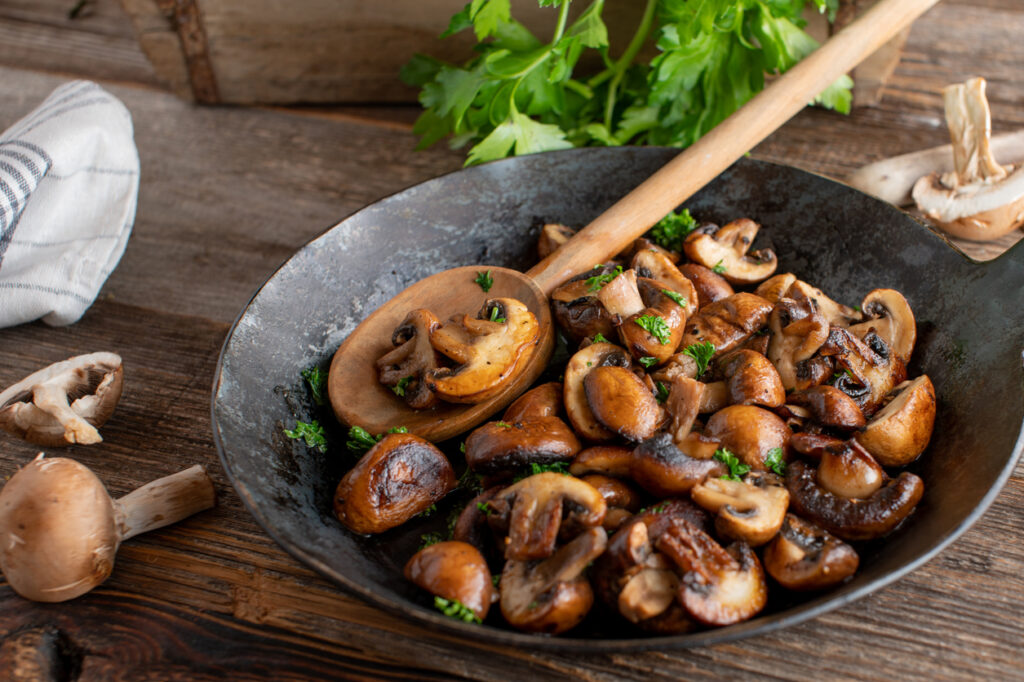
Mushrooms, particularly varieties like portobello and shiitake, provide around 3 grams of protein per cooked cup. They also contain powerful antioxidants and beta-glucans that support immune function and overall longevity. Their rich, umami flavor makes them an excellent meat substitute in stir-fries, sandwiches, and pasta dishes.
Mushrooms are also a source of vitamin D, which is essential for bone health and immune support. Their unique compounds have been linked to reduced inflammation and improved brain function. Including mushrooms in your diet can help diversify your protein sources while adding depth and richness to your meals.
8. Artichokes provide protein and digestive support.
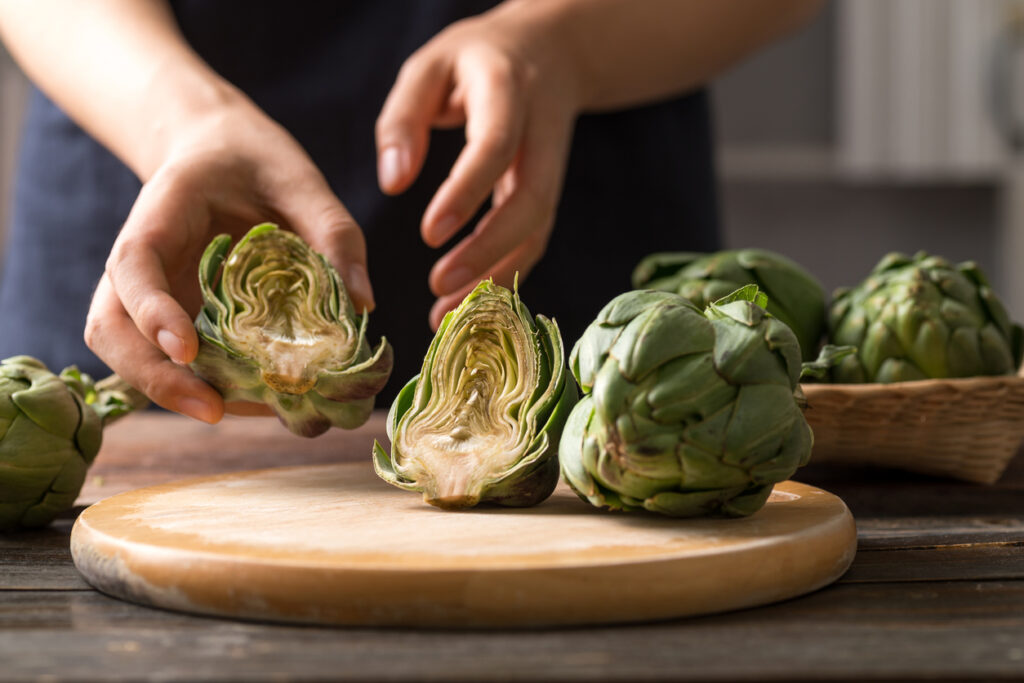
Artichokes contain about 4 grams of protein per cooked cup and are packed with fiber, making them great for digestive health. They also help promote liver function and reduce cholesterol levels, making them a heart-friendly choice for seniors. Whether steamed, grilled, or blended into dips, artichokes are both delicious and nutritious.
Beyond protein, artichokes are loaded with prebiotics, which help nourish gut bacteria and support overall digestive wellness. Their high antioxidant content also protects against cellular damage and inflammation. Adding artichokes to your meals can enhance both your protein intake and your overall well-being.
9. Corn is a starchy vegetable with a protein boost.
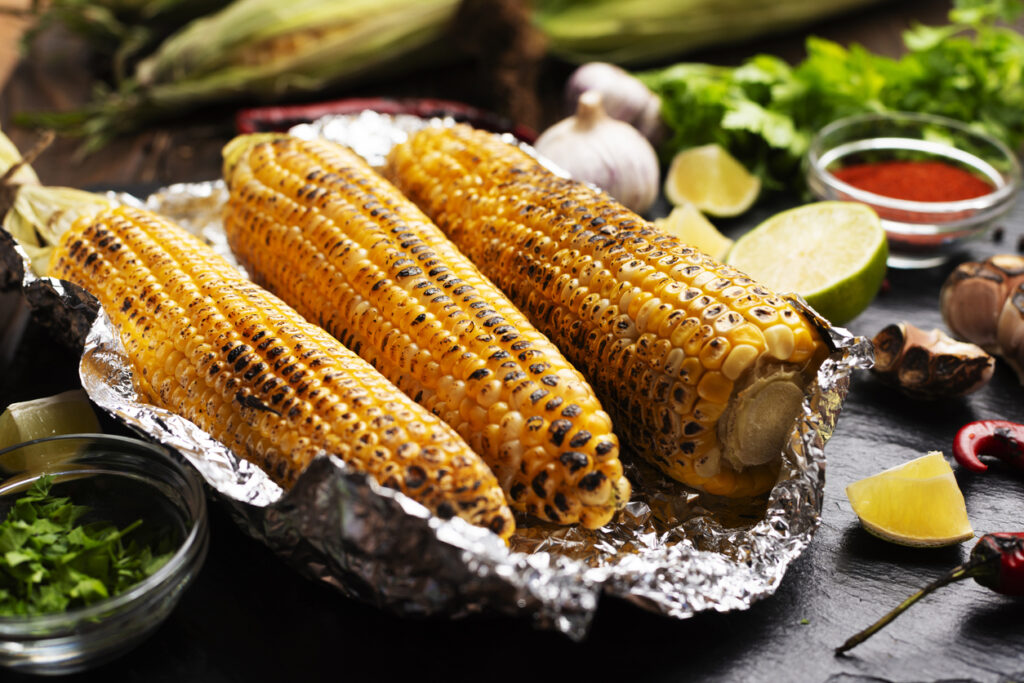
Corn provides around 5 grams of protein per cooked cup, making it a great plant-based protein option. It’s also high in fiber and essential nutrients like B vitamins and magnesium, which support energy production and brain function. Grilled, boiled, or added to salads, corn brings a satisfying sweetness and crunch to your diet.
In addition to protein, corn contains antioxidants like lutein and zeaxanthin, which support eye health and reduce the risk of age-related vision decline. Its combination of fiber and slow-digesting carbohydrates helps stabilize blood sugar levels, making it a beneficial addition to a balanced senior diet.
10. Potatoes offer more than just carbs.
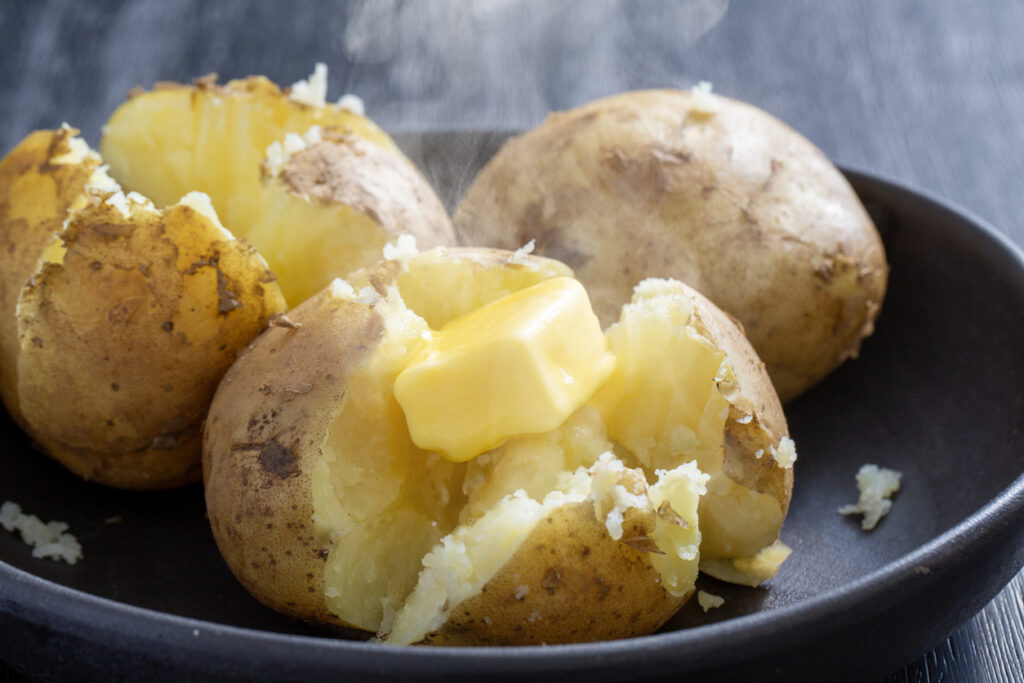
A medium-sized potato contains about 4 grams of protein, along with potassium, fiber, and vitamin C. While often associated with carbohydrates, potatoes also contribute to muscle maintenance and recovery. Whether baked, mashed, or roasted, they make a comforting and nutritious side dish.
Potatoes also provide resistant starch, which supports gut health and promotes beneficial bacteria growth. Their combination of protein, fiber, and essential nutrients makes them a valuable part of a well-rounded diet, helping maintain energy levels and digestive health.
11. Sweet potatoes provide protein with added antioxidants.
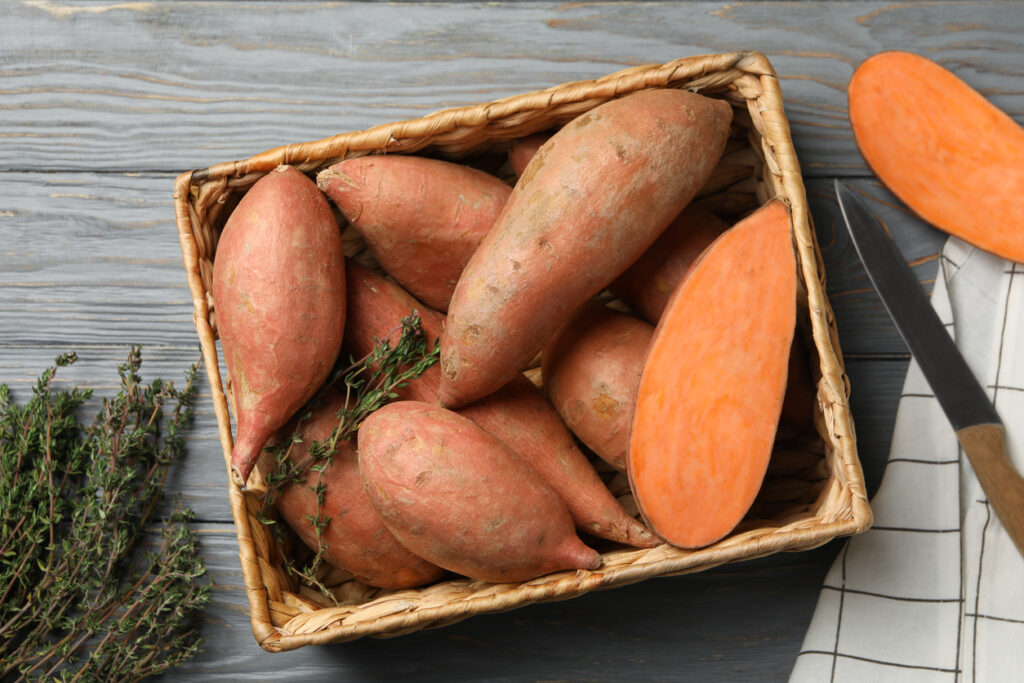
Sweet potatoes contain about 2 grams of protein per cooked cup and are packed with beta-carotene, fiber, and essential vitamins. They help regulate blood sugar levels while providing a naturally sweet and satisfying addition to any meal. Baked, roasted, or mashed, they are both delicious and nutritious.
Their high antioxidant content supports immune function and reduces inflammation, promoting long-term health. Sweet potatoes also aid in digestion and help maintain healthy vision, making them a smart choice for seniors looking to optimize their diet.
